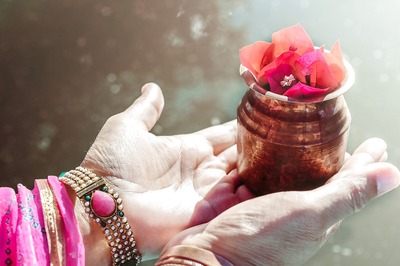
views
New Delhi: Should long sexual relationships be treated as good as marriages? If so, what should be the length of such a relationship?
The Supreme Court has sought the views of the central government in deciding if a prolonged sexual relationship should be considered as ‘de facto marriage’, fastening legal liabilities on the male partner.
A bench of Justices Adarsh K Goel and SA Nazeer issued a notice to Attorney General of India KK Venugopal and requested him to depute an Additional Solicitor General to assist the court in resolving the legal conundrum arising out of relationships where partners have sexual relationship for a considerable period.
The Court also appointed senior lawyer Abhishek Manu Singhvi to assist it as amicus curiae.
The bench noted that it has come across several cases where a man cannot be held criminally liable for rape in relationships with long periods of cohabitation. But, the court said, such relations could entail certain liabilities like in a marriage.
It said the question is “whether, on account of long cohabitation, even if the relationship is held to be consensual and the petitioner is not held liable for the offence alleged, the petitioner can be fastened the civil liability treating the relationship to be de facto marriage in view of long cohabitation.”
The top court added, “This interpretation may have to be considered so that a girl is not subjected to any exploitation and is not rendered remediless even if a criminal offence is not made out.”
It cited various judgments in the past wherein the Supreme Court interpreted laws such as Domestic Violence Act, Succession Act etc to provide succor to the women in live-in relationships but observed that such relationship has not been statutorily recognized under any legislation or acknowledged as a facet of personal law.
The court also referred to an article published in 2012 wherein former SC judge AK Ganguly has emphasized the need to remove the ambiguity over live-in relationships and the relationships ‘in nature of marriages’ their interpretation by a body of the Supreme Court judgments.
In this article, the retired judge had said live-in relationships and other such relationships should also be examined on the touchstone of bigamy, and that whether such relationships can find their place in personal laws in the country.
Further, the court has not in any of its judgments, clarified what has to be the length of the relationship to treat a relationship equivalent to the marriage.
Justice Ganguly had also underlined that Section 125 of the CrPC could be amended to provide for maintenance to the women in such relationships.
It was also highlighted that issues relating to inheritance, divorce, status and rights of children from live-in relationships were also in a flux for want of legal recognition and statutory provisions.
The Supreme Court will hear the government’s views on September 12.
The bench was hearing an appeal by a man seeking annulment of rape charges against him. The man was in a sexual relationship with a woman for a number of years but refused to marry her. The woman alleged that she had sexual relations with him only upon the promise of marriage and thus, the consent was induced, not free. The bench, on Monday, stayed the man’s trial and decided to examine it along with another petition in this case.




















Comments
0 comment